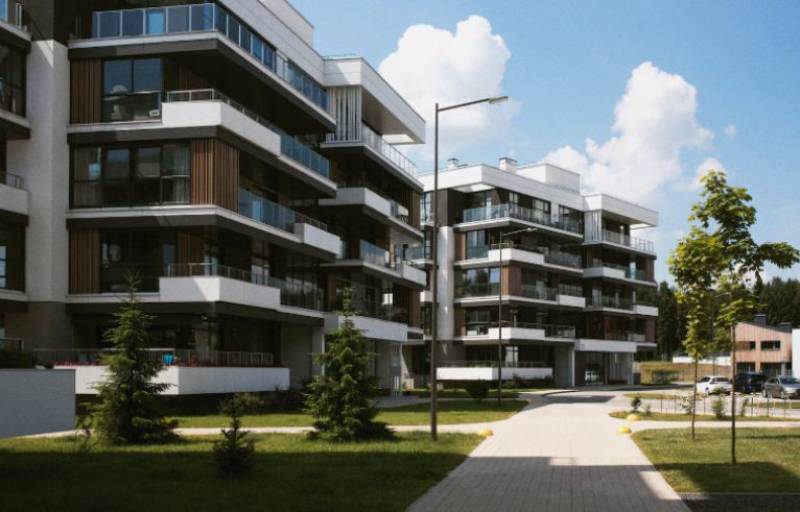Date Published: 23/08/2025
Your ultimate guide to finding the perfect property: Key factors to consider
Things to consider when looking to purchase property
Buying a property is exciting, whether it's your first home, a holiday home or an investment. But between scrolling through endless listings and dealing with piles of paperwork, the process can also feel overwhelming.
If you are looking for a real estate property in your area or anywhere else in the world, knowing exactly what to look for can save you time, money and a lot of stress.
To help you make an informed decision, here is a complete list of aspects that you should take into account when looking for a real estate property.
Location, location and location
You've heard it a thousand times, but location really is what determines the success or failure of a property purchase. Think beyond the neighbourhood's reputation and consider how it fits in with your lifestyle and long-term goals.
When considering the best location, it is best to check:
- Proximity to essential services: Are there shops, schools, medical centres and public transport nearby?
- Future development plans: Upcoming infrastructure projects may increase the value of the property.
- Compatibility with your lifestyle: If you are going to buy in Marbella, for example, you may want a place near the beach or golf courses, depending on what is important to you.
A beautiful house in an unsuitable location can quickly become a reason for regret. Therefore, if you are or wish to be in Marbella, look for
Marbella real estate properties that are in a convenient location for you and your needs.
Budget and hidden costs
Establishing your budget is one of the first steps you should take before you start looking for a real estate property. But your budget should not focus solely on the purchase price. There are additional costs that can easily surprise you.
Some of these costs are:
- Property taxes
- Maintenance or renovation expenses
- Community of Owners (HOA) fees, if applicable
You should also take into account costs such as notary fees, registration taxes and insurance premiums, which may be higher in the case of coastal properties. Being realistic about your total investment will help you avoid surprises.
Purpose of the property
The reason why you buy should guide many of your decisions. If you are looking for a primary residence, for example, you should focus on comfort, commuting and community. And if it is a holiday home, take into account seasonal access, amenities and rental potential.
In addition, if you plan to
invest in real estate, research the rental demand, the potential for return on investment and the stability of the local real estate market.
Knowing your reasons will help you to rule out unsuitable options in the early stages of the search and avoid wasting time on things that do not matter.
Condition of the property
It is easy to get carried away by the charm or aesthetics of a home, but the structural condition should always be a priority. A nice exterior or a cosy interior will not do much good if the house is not stable.
Therefore, before buying a property, request a professional inspection to check the following:
- Stability of the foundations
- State of the roof
- Plumbing and electrical systems
- Drainage system
- Signs of mould or pest infestations
If you are buying a house on the coast, pay special attention to saltwater corrosion, water penetration and waterproofing.
Buying a home is a huge investment. A thorough home inspection can stop you from making the wrong decision.
Market trends
Understanding current and historical market trends can help you negotiate better and plan your purchase wisely.
Please note the following:
- Price per square metre in the area you want
- Seasonal fluctuations in prices
- Balance between supply and demand
If the market is cooling down, you may have room to trade. If it's getting hot, be prepared to act quickly. It is useful to keep abreast of current trends and changes in the real estate market in your area.
Legal considerations
Different countries and regions have different rules when it comes to buying property. In Spain, for example, to buy a property, you will need:
- An NIE (foreigner identification number) to buy a property
- A formal review of all contracts and documentation by an independent attorney
- Compliance with zoning laws is required if you plan to renovate or expand the property
Skipping
due diligence on legal issues can lead to costly legal battles later on. Therefore, make sure that you spend the necessary time to properly research and familiarise yourself with local laws and regulations.
Always verify the property's legal details, ownership and previous mortgages or debts.
Potential for resale
Even if you plan to stay in your new home for decades, life can change at any time without warning. A property with a great resale potential offers you flexibility and scope to deal with unexpected emergencies.
Factors that increase the resale value include:
- Good location and growth of the neighbourhood
- Architectural style or popular features
- Proximity to services and transportation
- Low crime rates
Keeping these factors in mind means that you will have less chance of running into problems in case you ever have to sell or move. Think about your future buyer. What would make you choose your property over others?
Curb appeal is the first impression a buyer gets of your property. Consider the external appearance of your soon-to-be home and see if there is a need for maintenance.
Neighbourhood and community
A property is not just walls and floors. Nor is it limited to the exterior and curb appeal. You also have to take into account the community that you will be a part of.
When buying a property, you can assess the neighbourhood atmosphere as follows:
- Visit it at different times of the day to assess the noise levels.
- Talk to the neighbours to find out about any problems there are.
- Research crime statistics and community events.
If you're moving abroad, it's worth spending some time living in the area before you commit.
article_detail

|


















